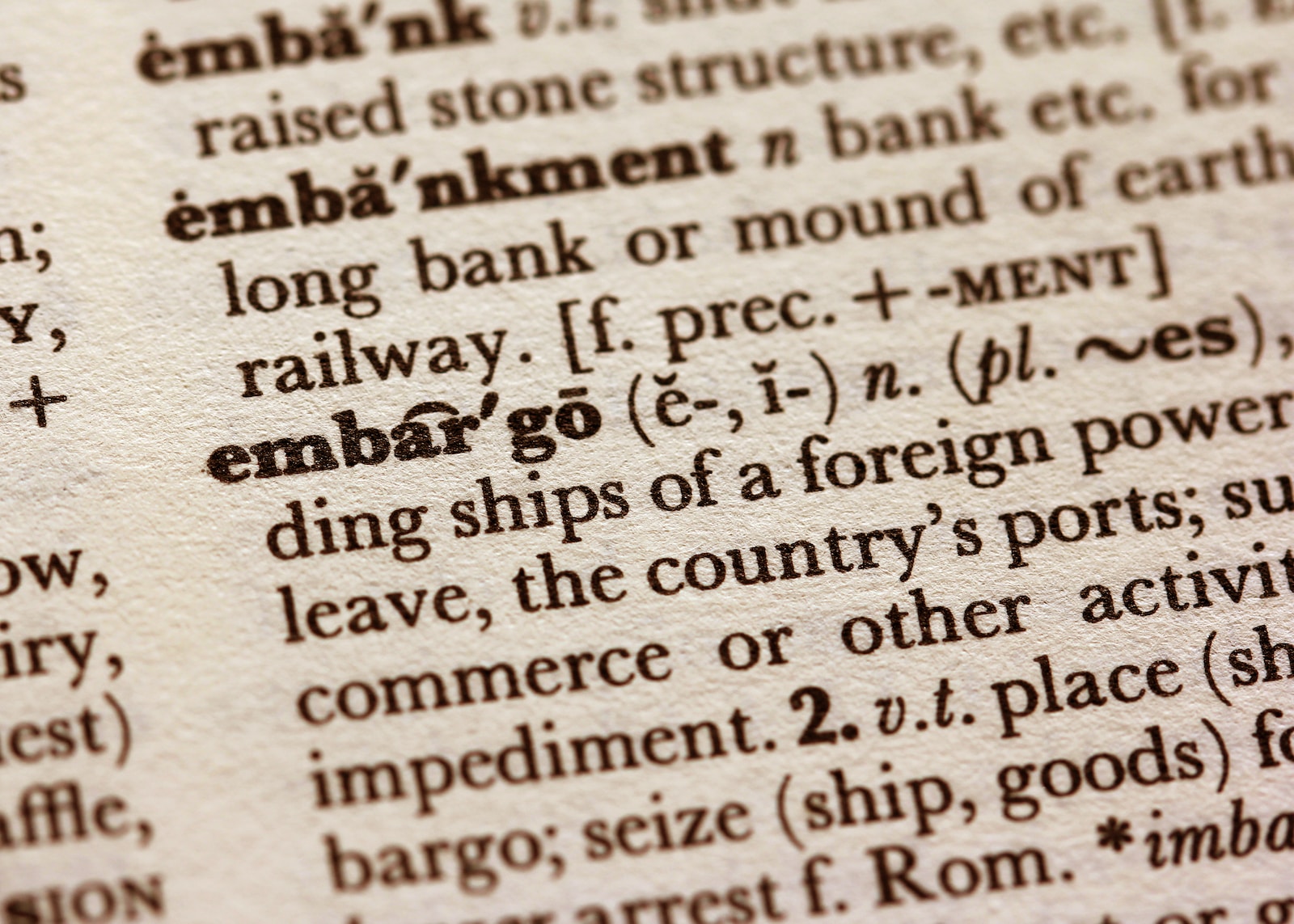Last Updated on: 22nd November 2023, 10:16 am
Under Embargo! You might of seen this phrase before
Embargoes are a common tool used by organizations and individuals to control the release of information to the media and the public. When information is under embargo, it means that it is not yet ready to be shared and that there is an agreed-upon date and time when it will become public. In this article, we will take a closer look at what “Under Embargo” means and how it is used in the context of public relations.
What is an embargo? (Embargoes)
To understand what “Under Embargo” means, we first need to define what an embargo is. An embargo is a restriction placed on the release of information to the media and the public. It is commonly used by organizations and individuals to control the timing and content of news stories. When information is under embargo, it means that it cannot be shared with the media or the public until a specific date and time.
Why use an embargo?
There are several reasons why organizations and individuals might use an embargo. One of the main reasons is to ensure that the information is released in a controlled and coordinated manner. By agreeing on a specific date and time for the release of information, organizations and individuals can ensure that their message is heard loud and clear and that it is not drowned out by other news stories.
Another reason for using an embargo is to give journalists and media outlets time to prepare their stories. By providing advance notice of a news story, journalists and media outlets can do their research, conduct interviews, and prepare their articles or broadcasts in advance. This can help ensure that the news story is accurate, well-researched, and informative.
How is “Under Embargo” used in public relations?
In the context of public relations, “Under Embargo” is used to indicate that information cannot be shared with the media or the public until a specific date and time. When a press release or other piece of information is sent out under embargo, journalists and media outlets are expected to honor the embargo and not share the information until the embargo is lifted.
To ensure that the embargo is honored, organizations and individuals may require journalists and media outlets to sign a non-disclosure agreement (NDA) or embargo agreement. These agreements outline the terms of the embargo and the consequences of breaking it.
How to handle embargoed press releases/ content?
How to handle embargoed information If you are a journalist or media outlet who has been given information under embargo, it is important to handle it carefully and respect the embargo. This means not sharing the information with anyone else until the embargo is lifted.
If you are unable to honor the embargo for any reason, it is important to contact the organization or individual who provided the information and explain the situation. Breaking an embargo can have serious consequences, including loss of trust and credibility with sources, damage to professional relationships, and even legal action.
Conclusion
“Under Embargo” is a phrase that is commonly used in public relations to indicate that information cannot be shared with the media or the public until a specific date and time. Embargoes are an important tool for controlling the release of information and ensuring that news stories are reported accurately and effectively. By following the guidelines outlined in this article, journalists, media outlets, and organizations can use embargoes effectively and ethically to achieve their communication goals.
Five tips for using under embargo
- Be clear and specific: When using an embargo in your press release, make sure that the embargo date and time are clearly stated and that there is no confusion about when the information can be released.
- Respect the embargo: Once the embargo is in place, it is important to honor it and not share the information with anyone else until the embargo is lifted. Breaking an embargo can have serious consequences, including loss of trust and credibility with sources and damage to professional relationships.
- Provide context: When sending out a press release under embargo, make sure to provide some context about the news story and why it is important. This can help journalists and media outlets understand the significance of the story and prepare their coverage in advance.
- Follow up: After the embargo has lifted, it can be helpful to follow up with journalists and media outlets to see if they need any additional information or if they have any questions about the story.
- Be strategic: Finally, it’s important to be strategic about when and how you use embargoes in your press releases. Embargoes can be a powerful tool for controlling the release of information and generating media coverage, but they should be used judiciously and in a way that supports your overall communication goals.
Whats the opposite of “Under Embargo” ?
The opposite of “Under Embargo” is “Immediate Release,” – which means that the information can be shared with the media and the public as soon as it is received. Immediate release can be a powerful tool for organizations and individuals who want to get their message out quickly and widely. However, without the opportunity to prepare their coverage in advance, journalists and media outlets may not have time to conduct research, verify information, or provide context for the story. This can lead to inaccurate or incomplete reporting, which can damage the credibility of both the organization issuing the press release and the journalists and media outlets reporting on the story. Ultimately, whether to use immediate release or under embargo will depend on the specific circumstances and goals of the organization or individual issuing the press release. Immediate release can be a powerful tool for getting a message out quickly, but it should be used carefully and strategically to ensure that the story is reported accurately and effectively.



